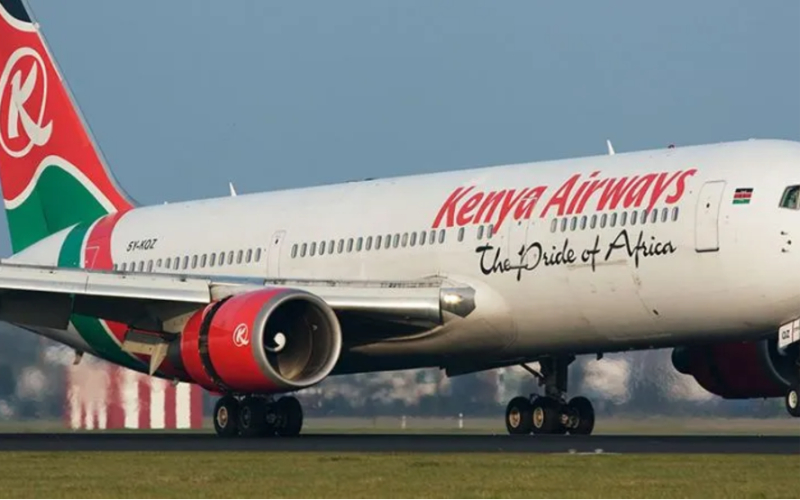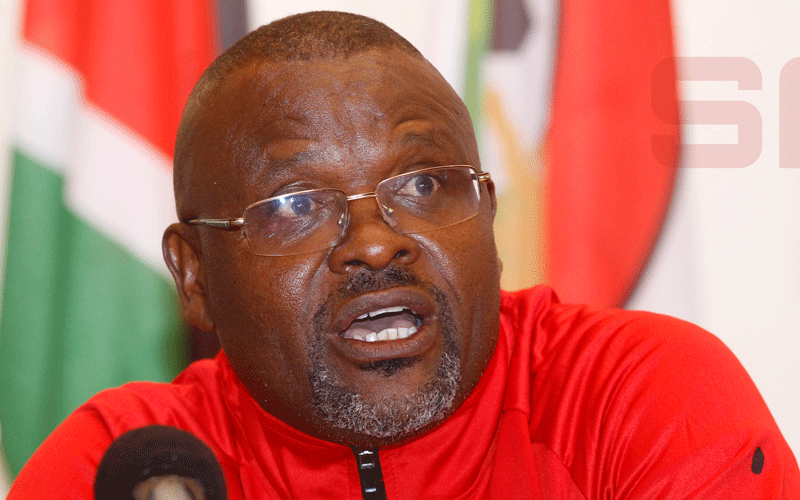KQ risk losing fleet as US bank posts default notice

Kenya Airways risk being reduced to a shell if US-based lenders JPMorgan Chase, Citibank and other local banks press for settlement of $1.347 billion (Sh188.3 billion) debt owed to them.
The national carrier owns only two of its 36 aircraft fully, meaning it faces total shutdown should the creditors execute a grounding order, in a move that will scare strategic investors that the management and government have been scouting.
The $1.347 billion debt which was raised through two Special Purpose Vehicles (SPVs) was meant to finance 17 aircrafts in 2012 and support network expansion, however KQ, as it is known by its international code, has since slipped into defaults due to successive yearly losses.
JPMorgan Chase and Citibank, which the government is considering hiring as lead advisors to settle maturing $2 billion (Sh270 billion) Eurobond, want the remaining $439.78 million (Sh61.35 billion) debt as of the end of May 2023 settled soon.
Carrier slapped with default notice
The amount demanded by the two US lenders was used to buy seven Boeing aircraft and one GEnx spare engine through the Tsavo SPV facility and is part of the $841.6 million (Sh117.4 billion) that KQ initially received.
The second SPV, Samburu Facility, was incorporated in Cayman Island to raise $310 million (Sh34.24 billion) through a syndicated loan to purchase ten Embraer E-jets led by Standard Chartered Bank, Nedbank, China Development Bank, and Afrexim bank, and Trade Development Bank (formerly PTA bank).
While appearing before the Public Debt and Privatisation Committee, KQ CEO Allan Kilavuka revealed that the airline has already been slapped with a default notice, which must be obeyed if the airline is to continue flying.
“There is a likelihood of call up of sovereign guarantee for the balance. This is in addition to the risk of grounding the aircraft, defaults notices already issued by lenders and accrual of default penalties,” Kilavuka told the Committee.
Share of loans
Domestically, NCBA and Equity Bank top the list in demanding 23 per cent each (or Sh4.92 billion) of the total $224.97 million (Sh31.38 billion) debt owed to local lenders. The Co-Operative bank owns the second largest share of that loan, at 15 per cent, reflecting Sh3.2 billion.
National Bank of Kenya has an 11 per cent share while KCB and DTB want 9 per cent each. The remaining amount is shared between Eco bank and I&M bank which both have a 4 per cent share as SBM bank gets the least at 3 per cent.
The loss-making airline has been trimming fleets, weighing to merge with Kenya Airport Authority, diversifying business units, and consolidating with other African Airlines in a bid to shore up its coffers. Talks around shutting down KQ over constant bailout were thought as an alternative but the alternative was dropped since it was deemed risky as it would compel the State to take over all debts.
These strategies however remain an uphill task as the new administration cut the bailout that has since left the airline underfunded. Some of the bailouts usually go into servicing KQ debts.
“The current thinking is that this airline is significant undercapitalised. That is why the quest of capitalisation, either by GoK or investors is significant,” says Kilavuka. In the first 2022/23 Supplementary Budget, the National Treasury revised downwards the capital injected into the national carrier by Sh10 billion to Sh20 billion from the initial Sh30 billion. Treasury is targeting to stop the bailouts by December 2023 while introducing new reforms












